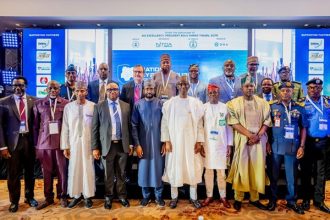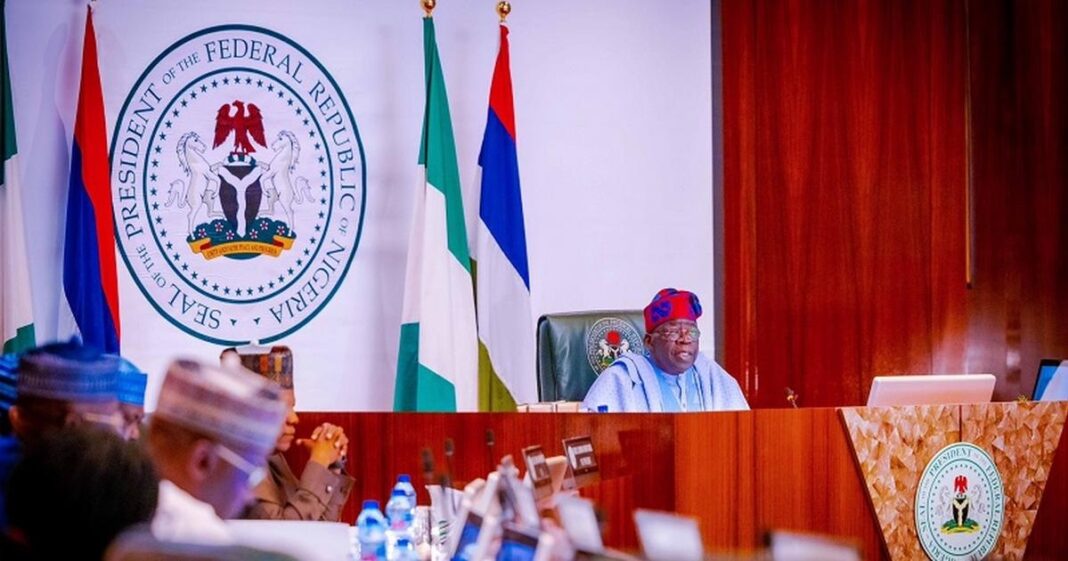The Federal Government has said that the digital divide is widening the existing inequalities in the country, especially in rural, hard-to-reach, and underserved communities.
It called for practical and scalable solutions to address the digital gap in the country and ensure an inclusive future of work in Nigeria.
Senior Special Assistant to the President on Special Needs and Equal Opportunities, Hon. Mohammed Abba Isa, made the call at the Technology and Employment Inclusion in Marginalised Contexts Roundtable, organised by Jobberman Nigeria in partnership with the Mastercard Foundation under the Young Nigeria Works programme, on Thursday in Abuja.
Isa stated that displaced persons, though resilient, are often disconnected from digital resources, adding that young women in marginalised communities remain underrepresented in tech-driven spaces.
He emphasised the importance of building inclusive digital ecosystems that provide equitable access to employment and economic dignity for all Nigerians.
He advocated for the full implementation of a minimum 5 per cent employment quota for people with disabilities (PWDs) in public institutions. Also, he called for an urgent amendment to the National Disability Act to extend this quota to the private sector.
Isa lamented that Persons With Disabilities continue to face systemic exclusion from employment pipelines and emphasised that no qualified person with a disability should be excluded from contributing meaningfully to our economy.
The presidential aide noted that the roundtable is strategic in advancing the shared vision of an inclusive Nigeria, where equal opportunity is not a slogan but a reality.
He said, “Importantly, this engagement aligns strongly with the Renewed Hope Agenda of President Bola Ahmed Tinubu’s administration, and it reflects the spirit and letter of Section 29 of the Discrimination Against Persons with Disabilities (Prohibition) Act, 2018, which mandates equal opportunity in employment, from job boards and social media to remote work platforms, technology holds transformative potential”.
Also speaking, Country Director, Mastercard Foundation Nigeria, Rosy Fynn, reaffirmed the foundation’s commitment to inclusive economic growth, adding that the roundtable aligns with the organisation’s mission to enable 30 million young Africans, particularly young women, to access dignified and fulfilling work by 2030.
Fynn highlighted the need to ensure that Inclusion is not a side conversation, but the main agenda and design systems where marginalised groups are not just considered but centred.
In his opening remarks, the CEO of The African Talent Company (TATC), the parent company of Jobberman, Hilda Kabushenga, emphasised that technology must be a force for inclusion, not division, noting that as the world of work evolves, it is essential to ensure that no one is left behind. “Today’s conversations are not just about technology, they are about equity, access, and opportunity,” Hilda said.
A key highlight of the event was the presentation and validation of a new research report titled: “Technology and Employment Inclusion in Marginalised Contexts”.
The report examines how digital platforms, including job boards, gig and remote work platforms, and social media, can provide marginalised populations with access to meaningful employment.
It also outlines the structural, cultural, and technological barriers these groups face, including low digital literacy, unaffordable data costs, and discrimination in the labour market.
The Technology and Employment Inclusion in Marginalised Contexts research highlights stark inequalities in employment access for marginalised groups in Nigeria. Nearly nine in 10 employers don’t recruit from these groups, with 72 per cent making no effort toward inclusive hiring. Skills gaps, transport issues, and bias remain major barriers, yet 55 per cent of PWDs and 44 per cent of displaced women have found work, often through self-employment in creative/media and agricultural sectors.
Poor educational access, as 85 per cent of schools are unequipped for PWDs, compounds the problem, though digital tools and remote work are creating new pathways. The report revealed that employers now cite a need for subsidised inclusivity training and public recognition to drive change.
Breakout sessions were held focusing on three critical groups: women in disadvantaged communities, persons with disabilities, and internally displaced persons. Each session provided space for honest dialogue and collaborative problem-solving, generating insights to inform policy and practice.
The event brought together key stakeholders across government, the private sector, civil society, digital platforms, and development organisations to address urgent barriers and emerging opportunities in the digital employment landscape for Nigeria’s most vulnerable groups, including women in disadvantaged communities, persons with disabilities (PWDs), and internally displaced persons (IDPs).
Outputs from the event, including a policy and practice brief, will inform employment programming, platform design, and advocacy initiatives. They will also contribute to the broader Young Nigeria Works learning agenda, which is focused on advancing scalable solutions for meaningful work among young people in Nigeria.







